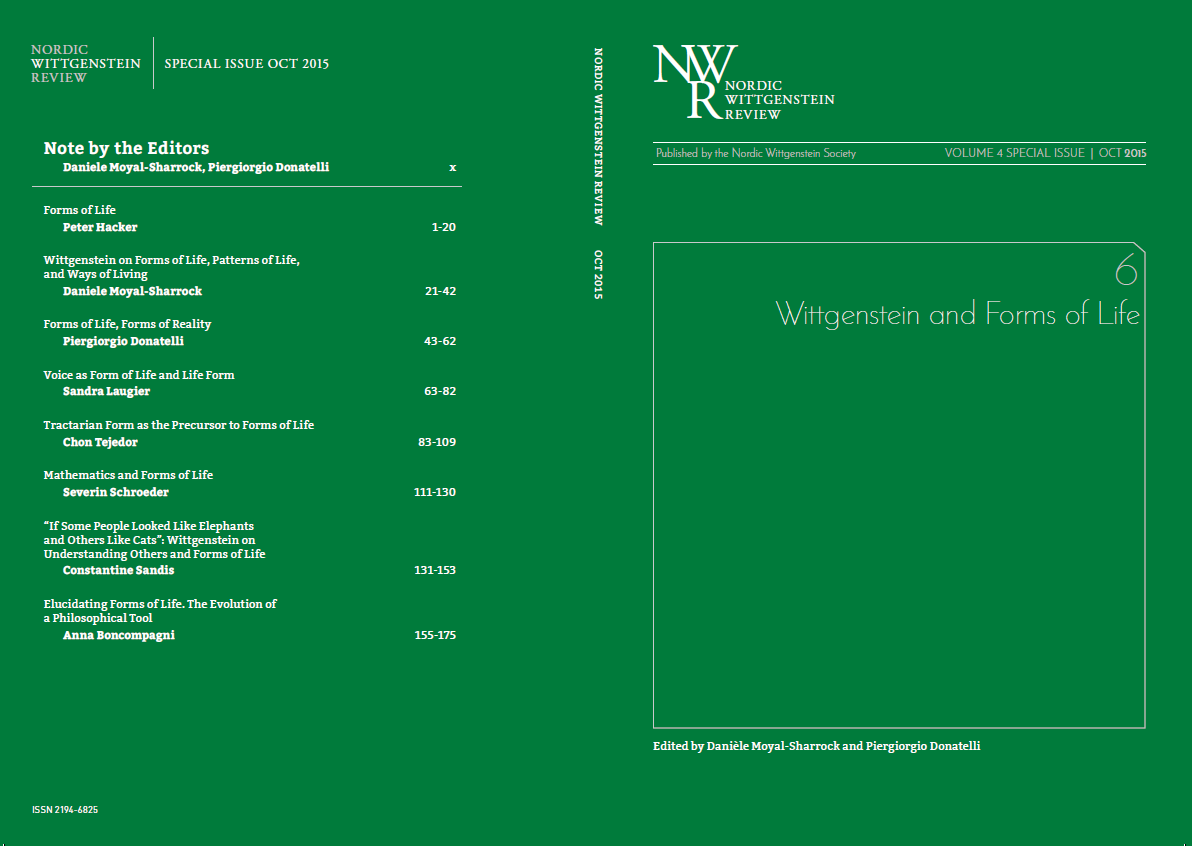Voice as Form of Life and Life Form
DOI:
https://doi.org/10.15845/nwr.v4i0.3364Keywords:
ordinary language, Cavell Stanley, form of life, expression, meaning, voiceAbstract
This paper studies the concept of form of life as central to ordinary language philosophy (as understood in Wittgenstein’s, Austin’s and Stanley Cavell’s work): philosophy of our language as spoken; pronounced by a human voice within a form of life. Such an approach to Wittgenstein’s later philosophy shifts the question of the common use of language – central to Wittgenstein’s Investigations – to the definition of the subject as voice, and to the reinvention of subjectivity in language. The voice is both a subjective and common expression: it is what makes it possible for my individual voice, or claim, to become shared and for our forms of life to be intertwined with a lifeform.
References
Cavell S., 1969. Must We Mean What We Say? New York: Scribner’s.
Cavell S., 1972. The Senses of Walden. 2nd edition 1992. Chicago: The University of Chicago Press.
Cavell S., 1979. The Claim of Reason. New York: Oxford University Press.
Cavell S., 1988. In Quest of the Ordinary. Chicago: The University of Chicago Press.
Cavell S., 1989. This New Yet Unapproachable America. San Francisco: North Point Press.
Cavell S., 1994. A Pitch of Philosophy. Cambridge: Harvard University Press.
Cavell S., 2010. Little Did I Know: Excerpts from Memory. Cambridge: Harvard University Press.
Kant 2000. Critique of the Power of Judgment, ed. Paul Guyer. New York: Cambridge University Press.
Laugier S., 2007. “The Myth of the Outer: Wittgenstein’s redefinition of subjectivity”. In: Moyal-Sharrock (Ed.) 2007, pp.151-173.
Laugier S., 2011. “Introduction to the French Edition of Must We Mean What We Say?” Critical Inquiry 37 (4), pp. 627-651.
Laugier S., 2013. Why We Need Ordinary Language Philosophy. Chicago: Chicago University Press.
Moyal-Sharrock D. (ed.) 2007. Perspicuous Presentations: Essays on Wittgenstein’s Philosophy of Psychology. London: Palgrave.
Wittgenstein, L. 1970. Zettel. G.E.M. Anscombe and G.H. von Wright (eds). Trans G.E.M. Anscombe. Berkeley: University of California Press. [Z]
Wittgenstein, L. 1980. Remarks on the Philosophy of Psychology /Bemerkungen über Die Philosophie Der Psychologie, Vol. I, ed. G.E.M. Anscombe and G.H. von Wright, tr. G.E.M. Anscombe, Oxford: Blackwell. [RPP I]
Wittgenstein, L., 2001. Philosophical Investigations /Philosophische Untersuchungen, tr. G.E.M. Anscombe, 3rd Edition. Oxford: Blackwell. [PI]
Downloads
Published
How to Cite
Issue
Section
License
NWR uses the Creative Commons license CC-BY.
Vol. 1-3 used CC-BY-NC-SA. The collected works copyright ownership for Vol. 1-2 were shared by Nordic Wittgenstein Society and ontos Verlag/De Gruyter.








